Preemptive measure: Govt likely to ban more outfits including IS
Experts says no mechanism available to stop banned groups, publications from re-emerging.
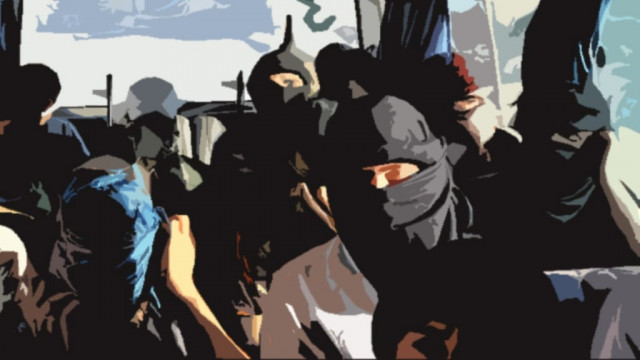
Preemptive measure: Govt likely to ban more outfits including IS
Top security agencies are drawing up a list of militant organisations that will be banned as part of the new anti-terror strategy approved recently by the civil-military leadership in the wake of the December 16 attack on a school in Peshawar.
According to the list, the Islamic State (IS), known as Daish in Arabic – a militant outfit that has made significant strides in parts of Syria and Iraq – is likely to be proscribed in Pakistan, The Express Tribune has learnt. Despite denials from the federal government, the Islamic State is believed to be engaged in a recruitment drive in Pakistan. One intelligence report suggested that the militant organisation is trying to establish its network in Balochistan, which is already in turmoil due to insurgency.

Although there is no clear evidence of the IS’s presence in the country, wall-chalking supporting the militant outfit has recently appeared in several major cities, including Karachi, Lahore and Peshawar. Earlier this month, the foreign ministry said the police had arrested some people linked to the IS graffiti in various cities. Also some members of the religious right, including Lal Masjid chief cleric Maulana Abdul Aziz, have publicly supported the IS agenda.
A security official told The Express Tribune that they will not take any chances given the potential threat posed by the IS in Pakistan. “Therefore, we are in the process of banning the IS in the country,” said the official, who asked to remain anonymous because of the sensitivity of the issue.
The move is seen as a preemptive measure to deny the IS any chance of making inroads in the country, which is home to many militant outfits.
The official said that the authorities concerned are also finalising a list of those organisations which have resurfaced with new names despite being proscribed by the government.
Interior Minister Chaudhry Nisar Ali Khan informed last week’s extraordinary meeting of top political and military leaders that some of the banned outfits are still operating in Pakistan under new names.
He said certain such organisations gave an impression that they enjoyed support of the security establishment. However, army chief General Raheel Sharif, who was present during the meeting, made it clear that the security establishment would not tolerate any such group.
Sources disclosed that the federal government and security agencies were working on a new mechanism in order to ensure that banned outfits do not reappear in any manner. However experts say there is no mechanism currently available to stop banned organisations from resurfacing.
In the National Plan of Action against terrorism that the prime minister unveiled recently, it has been assured that no banned outfit will be allowed to operate under a different name. However, a law ministry official said the same assurance was also given while amending the Anti-Terrorism Act 1997. “But due to lack of an operational mechanism these outfits are still functioning with alternate names,” he added.
As per official figures, there are 63 proscribed organisations in the country. Of these, 23 are functioning with different names, reveals a research of the Pakistan Institute for Peace Studies (PIPS).
During their 11-hour long meeting, even the group of experts – formed by the parliamentary committee for drafting the National Action Plan – failed to reach any conclusion on countering extremism strategy. Though later, the parliamentary committee deliberated on madrassa reforms and hate literature, an official said.
Besides proscribed outfits, the other main challenge is to counter hate literature or alternate ‘Jihadi’ media in the absence of any such mechanism. As per a rough estimation, the number of militants’ publications in Pakistan has crossed 50 and most of these have a minimum circulation of 2,000 to 6,000 per week.
“The challenge is the resurfacing of these publications under different names following repeated proscriptions, making it an extremely tough task to curb them”, said Muhammad Aamir Rana, a member of the experts group.
He said that on March 6, 2002, the federal and provincial governments banned 22 magazines – the propaganda tools of various religious and militant organisations. “But these publications are still available in the market under different names,” he added.
Rana said the challenges for the law enforcement agencies were manifold. “First, they have no legal mechanism to ban these publications permanently as when a banned publication reappears, the process to ban it again takes more than eight months.
“Second, the outfits have ostensibly morphed into charities and under the existing law, their publications cannot be banned until these charities are declared defunct or are acting against the law,” he added.
Published in The Express Tribune, December 29th, 2014.

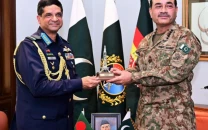
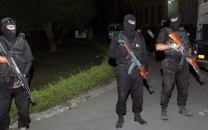

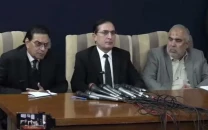

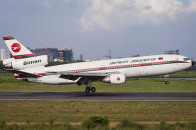












COMMENTS
Comments are moderated and generally will be posted if they are on-topic and not abusive.
For more information, please see our Comments FAQ